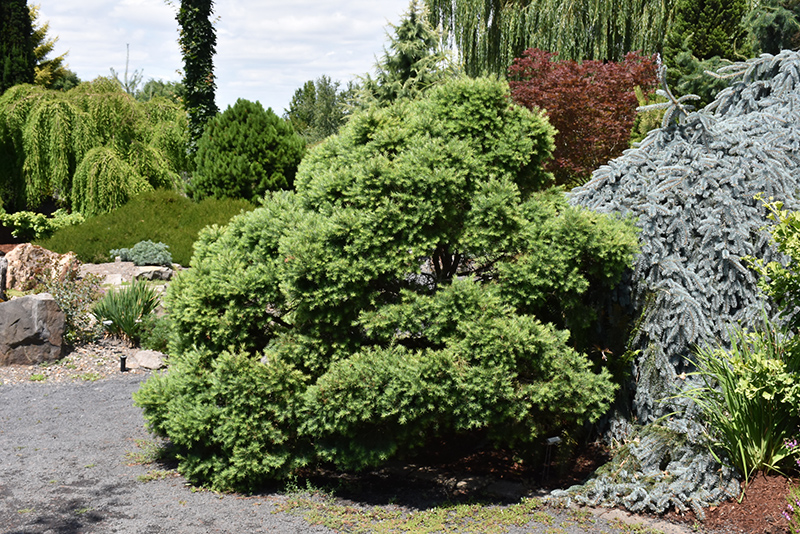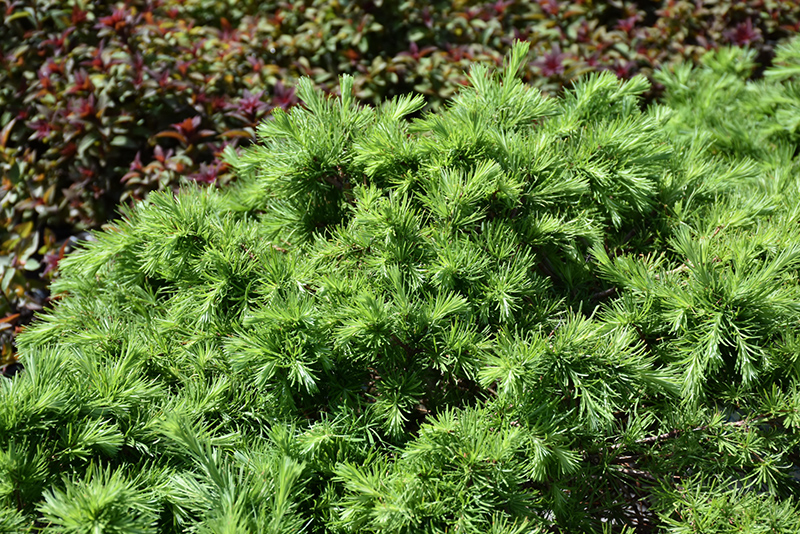6 feet
6 feet

2a
Iseli
Romberg Park Dahurian Larch is a dwarf conifer which is primarily valued in the landscape or garden for its ornamental globe-shaped form. It has light green deciduous foliage. The needle-like leaves turn an outstanding yellow in the fall. The rough gray bark and gold branches add an interesting dimension to the landscape.
Romberg Park Dahurian Larch is an open multi-stemmed deciduous shrub with a more or less rounded form. It lends an extremely fine and delicate texture to the landscape composition which can make it a great accent feature on this basis alone.
This is a relatively low maintenance shrub, and usually looks its best without pruning, although it will tolerate pruning. Deer don't particularly care for this plant and will usually leave it alone in favor of tastier treats. It has no significant negative characteristics.
Romberg Park Dahurian Larch is recommended for the following landscape applications;
- Accent
- Mass Planting
- Rock/Alpine Gardens
- General Garden Use
Romberg Park Dahurian Larch will grow to be about 6 feet tall at maturity, with a spread of 6 feet. It has a low canopy, and is suitable for planting under power lines. It grows at a slow rate, and under ideal conditions can be expected to live for 70 years or more.
This shrub should only be grown in full sunlight. It is quite adaptable, prefering to grow in average to wet conditions, and will even tolerate some standing water. It is not particular as to soil type, but has a definite preference for acidic soils. It is quite intolerant of urban pollution, therefore inner city or urban streetside plantings are best avoided. This is a selected variety of a species not originally from North America.

